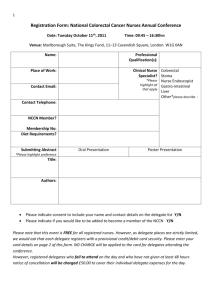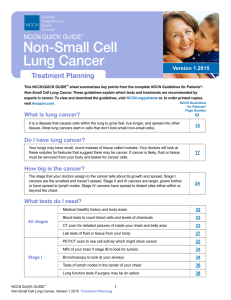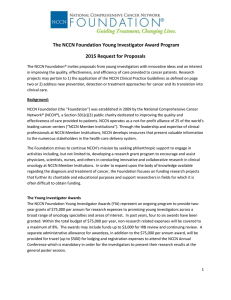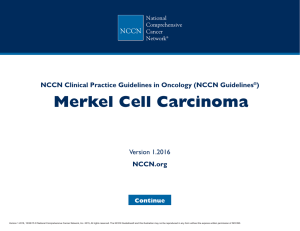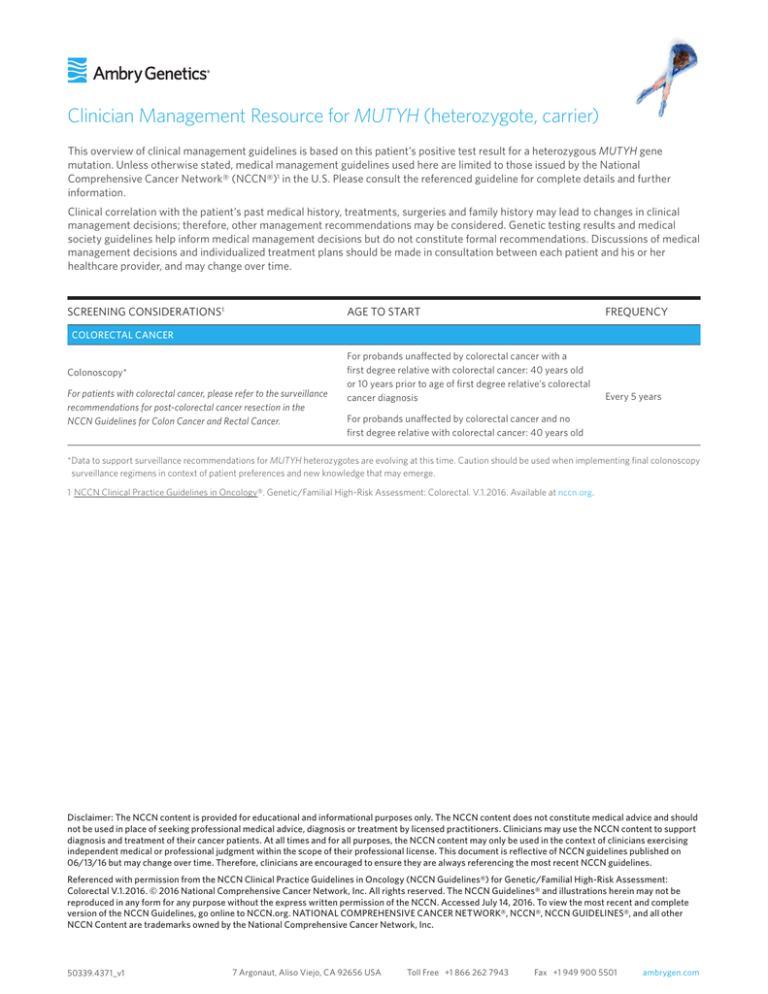
Clinician Management Resource for MUTYH (heterozygote, carrier)
This overview of clinical management guidelines is based on this patient’s positive test result for a heterozygous MUTYH gene
mutation. Unless otherwise stated, medical management guidelines used here are limited to those issued by the National
Comprehensive Cancer Network® (NCCN®)1 in the U.S. Please consult the referenced guideline for complete details and further
information.
Clinical correlation with the patient’s past medical history, treatments, surgeries and family history may lead to changes in clinical
management decisions; therefore, other management recommendations may be considered. Genetic testing results and medical
society guidelines help inform medical management decisions but do not constitute formal recommendations. Discussions of medical
management decisions and individualized treatment plans should be made in consultation between each patient and his or her
healthcare provider, and may change over time.
SCREENING CONSIDERATIONS1
AGE TO START
FREQUENCY
For probands unaffected by colorectal cancer with a
first degree relative with colorectal cancer: 40 years old
or 10 years prior to age of first degree relative’s colorectal
cancer diagnosis
Every 5 years
COLORECTAL CANCER
Colonoscopy*
For patients with colorectal cancer, please refer to the surveillance
recommendations for post-colorectal cancer resection in the
NCCN Guidelines for Colon Cancer and Rectal Cancer.
For probands unaffected by colorectal cancer and no
first degree relative with colorectal cancer: 40 years old
*Data to support surveillance recommendations for MUTYH heterozygotes are evolving at this time. Caution should be used when implementing final colonoscopy
surveillance regimens in context of patient preferences and new knowledge that may emerge.
1. NCCN Clinical Practice Guidelines in Oncology®. Genetic/Familial High-Risk Assessment: Colorectal. V.1.2016. Available at nccn.org.
Disclaimer: The NCCN content is provided for educational and informational purposes only. The NCCN content does not constitute medical advice and should
not be used in place of seeking professional medical advice, diagnosis or treatment by licensed practitioners. Clinicians may use the NCCN content to support
diagnosis and treatment of their cancer patients. At all times and for all purposes, the NCCN content may only be used in the context of clinicians exercising
independent medical or professional judgment within the scope of their professional license. This document is reflective of NCCN guidelines published on
06/13/16 but may change over time. Therefore, clinicians are encouraged to ensure they are always referencing the most recent NCCN guidelines.
Referenced with permission from the NCCN Clinical Practice Guidelines in Oncology (NCCN Guidelines®) for Genetic/Familial High-Risk Assessment:
Colorectal V.1.2016. © 2016 National Comprehensive Cancer Network, Inc. All rights reserved. The NCCN Guidelines® and illustrations herein may not be
reproduced in any form for any purpose without the express written permission of the NCCN. Accessed July 14, 2016. To view the most recent and complete
version of the NCCN Guidelines, go online to NCCN.org. NATIONAL COMPREHENSIVE CANCER NETWORK®, NCCN®, NCCN GUIDELINES®, and all other
NCCN Content are trademarks owned by the National Comprehensive Cancer Network, Inc.
50339.4371_v1
7 Argonaut, Aliso Viejo, CA 92656 USA
Toll Free +1 866 262 7943
Fax +1 949 900 5501
ambrygen.com

